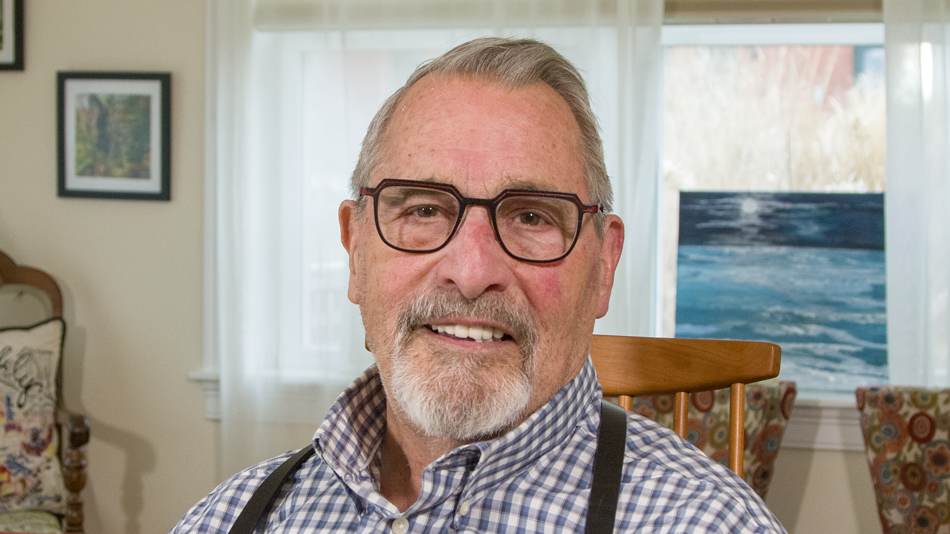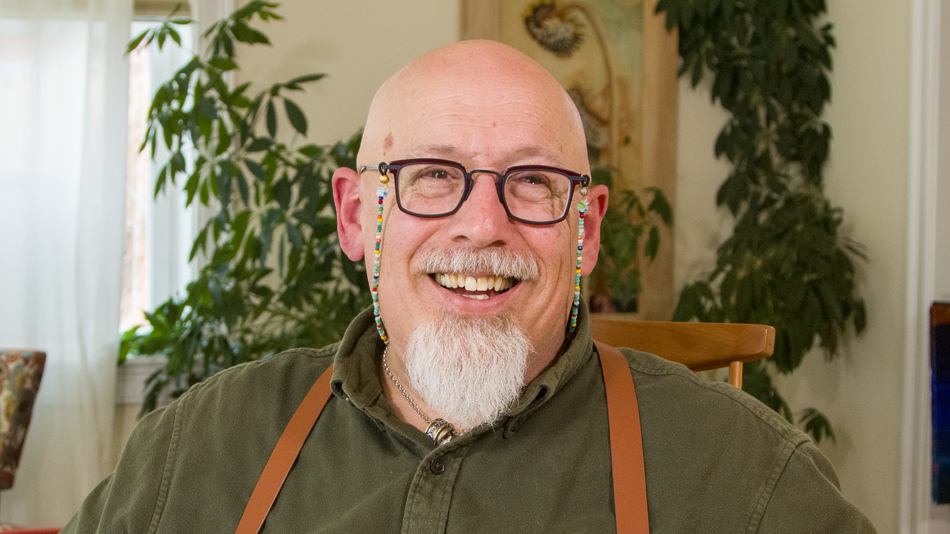I’m Ritchie Torres. I’m from Bronx, New York.
I remember the first time when I went to the Village and saw two men hold hands together, I was shocked because you would never in the Bronx – at least in my experience of the Bronx – would never see two men holdings hands, showing affection in the projects. But I saw it in the Village and it was unremarkable there.
I would often experience LGBT romance vicariously through the media. The only time I ever saw a movie in the theaters twice was Brokeback Mountain because it was such a powerful portrayal of love between two men.
I was 16 years old, either sophomore or junior in Lehman High School. It was a school that had 5,000 in a school that was designed for no more than 2,000. So it was crowded, it was cramped, it was teeming. And I was active in extracurricular programs. I was a member of the law team, the debate team. So there was a rumor circulating that my debate coach was gay. And so I decided to look up his profile on MySpace, before Facebook controlled the world. And I came to discover that he was gay. He identified as gay on his profile. And I was so excited and fascinated because there were – I had no family, no friends, no neighbors who were openly LGBT.
I remember going to him after class, when I could speak to him privately. And then I was spontaneously prompted to come out. And he was shocked. He was left speechless. So he gave me no immediate response. But then we had a longer conversation about it a few days later. He was supportive as I expected he would be. And I think he was shocked to learn that I was gay. And so that was the very first moment in my life when I knowledged my sexuality to someone else.
So the second moment came when there was a forum in Lehman High School on the definition of marriage. I don’t know why there was a forum on the definition of marriage. And I was assigned to argue in favor of marriage equality. And for whatever reason, I had a “Jim McGreevey” moment. I announced in an auditorium full of high school students that I’m a Gay American. And so far more people knew about my sexuality than before.
So after my Jim McGreevey moment, I was only out to a select set of people, like co-workers when I was working the City Council. I never went on dates. I had no relationships. I acknowledged that I was gay to myself and a select set of people, but I never – I was not living the life of a of a truly openly gay man. And then came the decision to run for public office.
I was one of 9 candidates in a hotly contested race. I was intent on winning. And your concern, you know, when you’re a candidate, your concern – you’re one controversy away from derailing your candidacy. And so I was anxious about doing anything that could derail my chances of winning. And an openly LGBT candidate never won public office in the Bronx before. But then one day, I received a call from a reporter, inquiring about my positions on LGBT issues, on marriage equality. And then he asked whether there were – did I have people in my life who were LGBT who shaped my views on the LGBT community.
And I said, “Well, I’m a member of the LGBT community. I’m openly gay.” And that was the moment when I decided I’m an openly gay elected official. I’m gonna run as an openly gay elected official. And I’m gonna win. And I did.
It was a question of integrity. Like I’m asking, you know, I’m asking residents who have been failed by their elected officials to trust me. Why and how can I be trusted if I’m telling lies about something as basic as my sexual identity? And I will tell you the process of coming out has taught me an ethic of radical authenticity. Not only am I open about my sexuality, I’m open about every aspect of my life. I speak openly about my story of growing up in public housing and struggling with poverty or grappling with depression to the point of contemplating suicide. My experience as an LGBT person has made me far more authentic as an elected official than I otherwise would be.
I’ve been able to make a powerful difference, but the most important difference that I’ve made is serving as a role model, is sending a clear message that there’s nothing wrong with being gay. You should feel no shame. And you should go through the same romantic experiences that your peers go through because you deserve nothing less. And that’s what I wish I had for myself. So I believe in the normalizing power of my own visibility, so that young people can grow up normally, without shame, with pride, with visibility.








Share